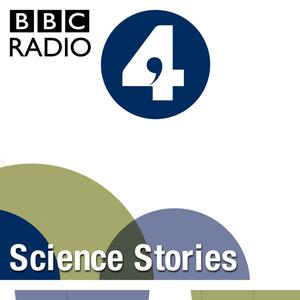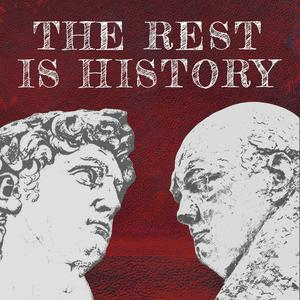
Science Stories
BBC
Surprising stories from the history of science told by Naomi Alderman and Philip Ball.
- 27 minutes 51 secondsAlexis Carrel and the immortal chicken heart
Philip Ball tells the story of Alexis Carrel, the French surgeon who worked to preserve life outside the body and create an immortal chicken heart in a dish. His quest was to renew ageing flesh, repair and rebuild our bodies and keep them healthy far beyond the usual human lifespan. In the early twentieth century his science was pioneering but his mission to achieve eternal life was underpinned by a dark and terrifying agenda. Carrel was a racist who advocated eugenics to preserve the superior civilisation of the West.
Philip Ball discusses the history and cultural impact of the tissue culture techniques developed by Carrel with social historian Professor Hannah Landecker of the University of California at Los Angeles. And he finds out about the legacy of Carrel's research from Dr Madeline Lancaster of Cambridge University, one of the pioneers of the growth of brain organoids from stem cells; small clusters of neurons and other cells, rather like mini organs no bigger than a dried pea.
10 September 2019, 8:00 pm - 27 minutes 47 secondsIbn al-Haytham and How We See
Philip Ball's story is of Ibn al-Haytham, the first scientist, and his book of optics that defined how we see.
9 January 2019, 9:00 pm - 27 minutes 37 secondsLady Mary Montagu's Smallpox Experiment
Naomi Alderman's Science Story reveals how Lady Mary Wortley Montagu experimented on her own child in a quest to prove that smallpox inoculation works. Born in 1689 in a position of some power and influence, Lady Mary travelled to Constantinople as the wife of the ambassador to Turkey and witnessed 'variolation parties'. Here 'a nut shell' of virus on a needle is put in an opened vein to infer immunity. Having lost her own brother to smallpox and survived with terrible scaring herself, Lady Mary knew first hand the dangers of the deadly disease. She became the first person to bring smallpox inoculation to the West. Medical historian Lindsey Fiztharris tells the remarkable story of how condemned prisoners are given the opportunity to escape execution under the orders of King George I if they are given the virus and survive.
Tim Spector, Professor of Genetic Epidemiology at Kings College, London, and Naomi discuss some of today's counter intuitive treatments, such as faecal transplants.
2 January 2019, 9:02 pm - 27 minutes 52 secondsKepler's Snowflakes
Philip Ball reveals the tale of a small booklet 'On The Six-Cornered Snowflake", written by Johannes Kepler as a New Year's gift. The C17th astronomer wished to explain the intricate and symmetrical shape of winter's tiny stars of snow. His insightful speculations about minerals and geometry was the beginning of the modern understanding of crystals.
26 December 2018, 9:00 pm - 27 minutes 46 secondsLucretius, Sheep and Atoms
Naomi Alderman's tale is of Lucretius, author of a 2000 year old poem that theorised about atoms and the natural world. Written in the first century BCE, during a chaotic and frightening time when the Roman Republic was collapsing, Lucretius encouraged people to feel free through contemplating the physics of the Universe. Naomi learns that many of the theories still hold water today and that the poem, De Rerum Natura, is an epic beautiful and persuasive piece of work.
19 December 2018, 9:00 pm - 27 minutes 54 secondsEddington's Eclipse and Einstein's Celebrity
Eddington's Eclipse and Einstein's Celebrity
Philip Ball's tale is of a solar eclipse 100 years ago observed by Arthur Eddington, a British astronomer who travelled to the remote island of Principe off the coast of West Africa and saw the stars shift in the heavens. His observations supplied the crucial proof of a theory that transformed our notions of the cosmos and turned a German physicist named Albert Einstein into an international celebrity. But this is also a tale of how a Quaker tried to use science to unite countries. The reparations imposed on Germany after the war extended into science too as many in Great Britain and other Allied nations felt that German science should be ostracised from the international community. As a Quaker, Eddington wanted just the opposite: to see peaceful cooperation restored among nations.
Producer: Erika Wright
12 December 2018, 9:00 pm - 27 minutes 33 secondsMary Anning and Fossil Hunting
Mary Anning lived in Lyme Regis on what is now known as the Jurassic Coast in the first half of the 19th century. Knowing the shore from childhood and with a remarkable eye for detection she was extremely successful in finding fossils. In 1812 she unearthed parts of an Icthyosaur and in 1823 she discovered the first skeleton of what became known as a Plesiosaurus - a long-necked, flippered creature with a tiny head. It looked a bit like an elongated turtle with no shell.
Naomi Alderman tells the science story of how Mary Anning, a poor and relatively uneducated young woman, became the supplier of the best fossils to the gentlemen geologists who were beginning to understand that the earth was very old and had been inhabited by strange extinct creatures. Naomi talks to Tracy Chevalier, author of Remarkable Creatures, a novel about Mary Anning, about her life and relationship with the geologists of the time, and to Dr Susannah Maidment, Curator of Dinosaurs at the Natural History Museum, about fossil hunting today.
11 July 2018, 8:02 pm - 27 minutes 40 secondsHypatia: The Murdered Mathematician
Naomi Alderman's tale is a murder mystery, the story of Hypatia, the mathematician murdered by a mob in the learned city of Alexandria, around the year 415 CE. Hypatia was a communicator of science, tackling difficult maths and teaching it to her students. This was incredibly important work. It was enough, at the time, to make her Alexandria's pre-eminent mathematician, and probably therefore the leading mathematician in the world.
And there's historical evidence that Hypatia made some discoveries and innovations of her own. She invented a new and more efficient method of long division. In a time before electronic calculators, the actual business of doing sums was an arduous part of engineering or astronomy, and any improvement in efficiency was very welcome.
All quite innocent science, so why did Hypatia end up being murdered by a mob? Natalie Haynes presenter of "Natalie Haynes Stands Up For The Classics" tells the inside story to Naomi Alderman. And Professor Edith Hall discusses Hypatia's legacy.
4 July 2018, 8:02 pm - 28 minutes 36 secondsDescartes' Daughter
There's a story told about French philosopher René Descartes and his daughter. He boards a ship for a voyage over the North Sea with a large wooden box which he insists be handled with such great care that the sea captain's curiosity is aroused. When Descartes is out of his cabin the sea captain opens the box and is horrified to find a life sized automaton inside. He's so shocked he throws the "daughter" overboard.
Descartes championed a view of nature in which everything happened because of the physical forces acting between its constituent parts: nature as a machine. It was a coolly rational vision that caught the scientific spirit of the seventeenth century. He was fascinated by automata and what they tell us about what it is to be human.
Philip Ball tells the story of Descartes and his "daughter" and his writings about humans and machines. He finds out more about the thirst for mechanical wonders and what it said about theories of the human body in Descartes' time, from historian of science Simon Schaffer of Cambridge University. And Kanta Dihar of the Centre for the Future of Intelligence also at Cambridge University talks about current research into AIs, driven purely by some mechanism of formal logic, that can mimic the capabilities of the human mind, and how contemporary culture explores our fears about them.
27 June 2018, 8:00 pm - 27 minutes 48 secondsUrea and the Wohler Myth
Philip Ball tells the story of German chemist Friedrich Wöhler's creation of urea, an organic substance previously thought only to be produced by living creatures. Yet in 1828 Wöhler created urea from decidedly non-living substances. It was exciting because the accidental transformation seemed to cross a boundary: from inorganic to organic, from inert matter to a product of life. It's a key moment in the history of chemistry but like many scientific advances, this one has also been turned into something of a myth. To read some accounts, this humble act of chemical synthesis sounds almost akin to the 'vital spark of being' described by Mary Shelley in her book published ten years previously, when Victor Frankenstein brought dead flesh back to life.
Philip Ball sorts out fact from fiction in what Wöhler really achieved in conversation with Peter Ramberg of Truman State University in Kirksville, Missouri, and he finds out about chemical synthesis of natural products today from Professor Sarah O'Connor of the John Innes Centre in Norwich.
Producer: Erika Wright.
20 June 2018, 8:00 pm - 27 minutes 54 seconds17th-Century Space Flight: The Real Cyrano de Bergerac
Philip Ball reveals the real Cyrano de Bergerac - forget the big nosed fictional character - and his links to 17th Century space flight. Cyrano was a soldier, gambler and duellist who retired from military exploits on account of his wounds around 1639, at the grand old age of 20. But he studied at university and, to judge from the books he went on to write, he was well versed in the philosophical and scientific debates of his day. He wrote two books, called The States and Empires of the Moon and its sequel, The States and Empires of the Sun. And he designed spaceships to travel to the moon and to the sun. Philip discusses the life and times of Cyrano with Mary Baine Campbell of Brandeis University in Massachusetts.
Journeys to the New World in the seventeenth century were voyages of trade - and ultimately of colonisation. What those travellers wanted were minerals, spices, gold, rare and precious objects that could fetch a fortune in the Old World. Today, the profit motive has returned to space travel. Efforts to develop spacecraft and to send people into space are increasingly being conducted not just by government agencies but by private companies, in search again of land and minerals. The use of resources on the moon and the planets is in principle governed by the Outer Space Treaty. Philip discusses the control of exploitation of space with Patricia Lewis of ICAN, the International Campaign to Abolish Nuclear Weapons.
13 June 2018, 8:00 pm - More Episodes? Get the App
Your feedback is valuable to us. Should you encounter any bugs, glitches, lack of functionality or other problems, please email us on [email protected] or join Moon.FM Telegram Group where you can talk directly to the dev team who are happy to answer any queries.
 The Rest Is History
The Rest Is History